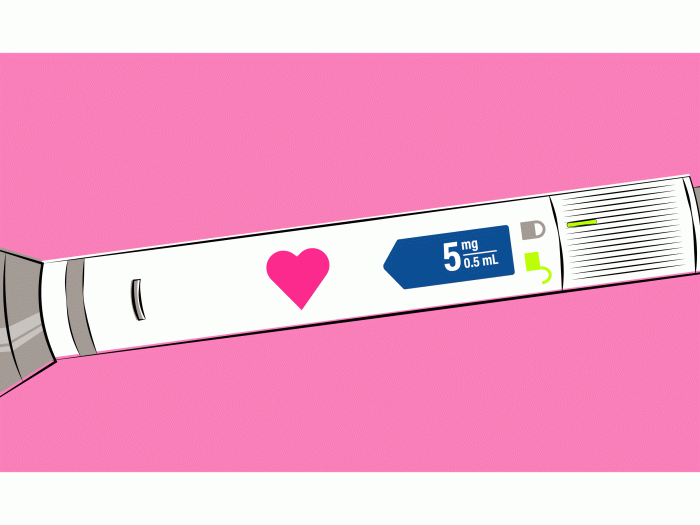Weight loss can do more than reduce joint pain in people who are overweight, a new study has found. Other big health improvements can happen, too.
7:00 AM
Author |

If you have joint pain tied to your weight, you might be wondering what it would take to ease the discomfort.
According to a new University of Michigan study, the answer is losing about 10 percent of body weight.
MORE FROM MICHIGAN: Sign up for our weekly newsletter
And, at that threshold, researchers found, pain reductions can spread far beyond the joints.
In the study, 123 participants followed a low-calorie liquid diet for 12 weeks. People who lost 10 percent of their body weight reported less pain — as well as improved mood, cognition and energy — compared with those who didn't shed as many pounds.
"Having relief can be quite transformative," says Andrew Schrepf, Ph.D., a research investigator at Michigan Medicine's Chronic Pain and Fatigue Research Center and the lead author of the study. "This process is helping people feel better and live a fuller life."
A new look at weight loss
Prior research has only examined how obesity affects weight-bearing joints. But no one, Schrepf says, has measured how a person's weight can influence pain in other areas such as the muscles, stomach and head.
So that the new study found reductions in abdominal, arm, chest and jaw pain, measured by self-reported symptom surveys, was surprising.
SEE ALSO: Can an Elimination Diet Help You Lose Weight?
Blood samples taken at the end of the 12 weeks from one-quarter of study participants also revealed a spike in anti-inflammatory molecules — a key weapon in fighting many types of pain — compared with those collected at the start.
"What we think that means is this process of losing weight may be affecting the central mechanisms of pain control related to the brain and spinal cord," Schrepf says.
Also of note: While both genders who met the study's weight-loss target reported increased energy levels, the effects were more pronounced in men.
What helps with weight loss: teamwork
People with obesity might recognize that weight loss can improve their quality of life, but they shouldn't approach the task casually, Schrepf says.
Patients in the study received tailored care from physicians and dietitians at Michigan Medicine's Weight Management Program to provide education, counseling and support throughout the endeavor.
"It's really clear that this kind of involvement at a personal level is critical to helping people get through the early period," says Schrepf.
That's why those striving for similar results should consult their doctor first, says Amy Rothberg, M.D., Ph.D., director of the weight management program and an associate professor of endocrinology nutritional sciences at the University of Michigan.
Although her program focuses on calorie restriction and weight loss, Rothberg says the role of exercise is also essential: "People are far more energetic on a low-energy diet and find after they begin losing weight that they can do more and are more physically active."
More research on the subject is ongoing at U-M. But the early results might encourage those seeking pain relief to make (and stick to) the necessary lifestyle changes to lose weight.
Says Schrepf: "As much as possible, hang on to that motivation."
Find out more about the Michigan Medicine Weight Management Program online. Patients must meet certain eligibility criteria to be admitted.

Explore a variety of healthcare news & stories by visiting the Health Lab home page for more articles.

Department of Communication at Michigan Medicine
Want top health & research news weekly? Sign up for Health Lab’s newsletters today!





